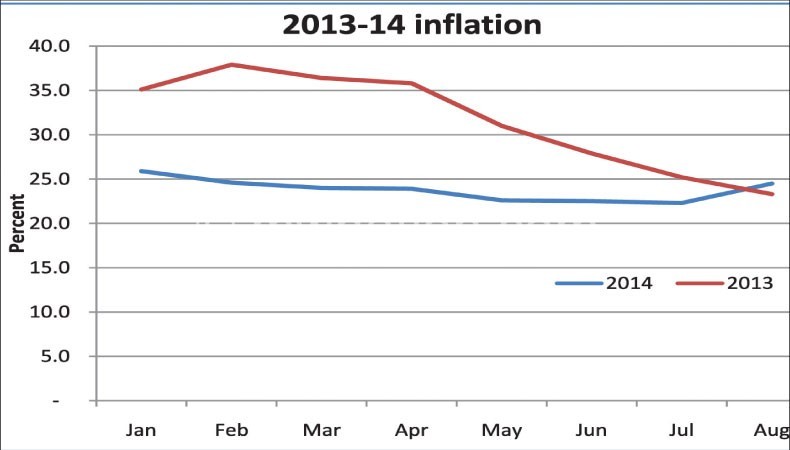EIU raises inflation projection, contradicts RBM
 Forecasting and advisory services provider, Economist Intelligence Unit (EIU), has contradicted local authorities, raising Malawi’s 2014 inflation average to 22.8 percent, pointing to less real incomes.
Forecasting and advisory services provider, Economist Intelligence Unit (EIU), has contradicted local authorities, raising Malawi’s 2014 inflation average to 22.8 percent, pointing to less real incomes.
Earlier, EIU had projected that inflation would average 19.6 percent in 2014 compared to 28.6 percent last year.
The Reserve Bank of Malawi (RBM) expects inflation to fall to 20.5 percent by December this year compared to 23.5 end of year in 2013. The Ministry of Finance expects inflation to fall to 15 percent by the end of this fiscal year.
A local business and investment advisory firm, Nico Asset Managers, in its September 2014 economic report, has quoted EIU that it expects inflation to average 22.8 percent this year then moderate to an average of 8.9 percent between 2015 to 2017 as productivity increases and as rising local fuel prices are offset by easing food prices.
But due to factors including rising food and non food inflation, the average measure of prices has started to rise. According to the National Statistical Office (NSO) the August inflation turned the corner rising to rising to 24.5 percent consequently threatening the country’s monetary authority target.
Due to the recent increase in inflation, analysts have pointed out that it will be hard for the country to achieve the RBM target.
In response to the rising inflation monetary authority have dragged their feet to reduce the country’s monetary policy maintaining it at 24.5 percent since July 2014.
The International Monetary Fund (IMF), on the other hand has advised the government to be ready to increase the monetary policy rate if the fall of inflation is slower than expected.
Analysts, however, fear that if the monetary policy rate is increased it will lead to higher interest rates.
Generally, high lending rates discourage borrowing, reduce disposable incomes for spending and investment and subdue economic growth.
According to Nico Asset Managers, the commercial banks’ lending rates are at an average of 34.22 percent which is still relatively high for borrowers while analysts fear that short term interest rates may rise if the government increases borrowing to finance the 2014/15 national budget.
Against a widening fiscal deficit due to donor aid freeze, analysts have pointed out that the government may resort to borrowing domestically to finance the gap a move which can prompt a rise in interest rates.
The government has, however, said that it will stick to fiscal discipline and spend within its means.





